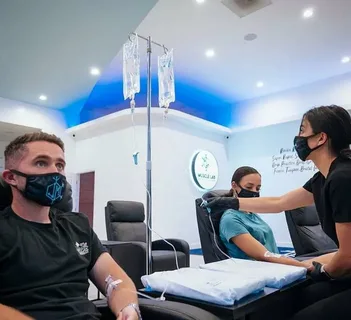Asthma is a chronic respiratory condition that affects millions of people worldwide. For those living with asthma, managing symptoms and preventing flare-ups can be challenging. This is where an asthma specialist comes in. An asthma specialist is a healthcare professional with advanced training in diagnosing, managing, and treating asthma. This article explores the importance of consulting an asthma specialist, what to expect during your visit, and how they can help you lead a healthier life.
Who is an Asthma Specialist?
An asthma specialist is typically a pulmonologist, allergist, or immunologist with specialized training in respiratory diseases. These professionals have a deep understanding of the complexities of asthma and are equipped to provide comprehensive care. They can accurately diagnose asthma, identify triggers, and develop tailored treatment plans to manage the condition effectively.
Why You Should See an Asthma Specialist
Visiting an asthma specialist is crucial for several reasons:
- Accurate Diagnosis: Asthma symptoms can mimic other respiratory conditions, making it difficult to diagnose. An asthma specialist uses advanced diagnostic tools and techniques, such as spirometry, peak flow measurement, and allergy testing, to confirm the diagnosis.
- Personalized Treatment Plans: Every asthma case is unique, and a one-size-fits-all approach may not be effective. An asthma specialist creates a personalized treatment plan based on the patient’s specific needs, severity of symptoms, and triggers. This plan may include medications, lifestyle changes, and trigger avoidance strategies.
- Management of Severe Asthma: For individuals with severe or difficult-to-control asthma, an asthma specialist provides specialized care, including biologic therapies, immunotherapy, and advanced inhalation techniques.
- Comprehensive Education and Support: An asthma specialist educates patients on the proper use of inhalers, peak flow meters, and other devices. They also provide guidance on recognizing early signs of an asthma attack and taking preventive measures.
What to Expect During Your Visit to an Asthma Specialist
When visiting an asthma specialist, you can expect a thorough evaluation of your respiratory health. Here’s a breakdown of what typically happens:
- Medical History Review: The specialist will review your medical history, including any previous asthma diagnoses, medications, and treatments. They will also inquire about your symptoms, triggers, and lifestyle.
- Physical Examination: A comprehensive physical examination, particularly of the respiratory system, will be conducted to assess your lung function and detect any signs of wheezing or difficulty breathing.
- Diagnostic Testing: The specialist may perform a series of tests, such as spirometry, which measures the amount of air you can exhale and how quickly you can do so. Other tests might include a methacholine challenge or allergy testing to identify specific triggers.
- Discussion of Results and Treatment Plan: After the tests, the specialist will discuss the results with you and recommend a treatment plan. This plan may include a combination of medications, lifestyle changes, and ongoing monitoring.
Common Treatments Prescribed by Asthma Specialists
Asthma specialists use a variety of treatments to manage asthma symptoms effectively. These treatments are tailored to the individual’s condition and severity. Common treatments include:
- Inhaled Corticosteroids: These are the most effective long-term control medications for asthma. They reduce inflammation in the airways, making them less sensitive to triggers.
- Long-Acting Beta Agonists (LABAs): These medications are often combined with inhaled corticosteroids to help keep the airways open for an extended period.
- Leukotriene Modifiers: These are oral medications that help prevent asthma symptoms by blocking the action of certain chemicals in the body that cause inflammation and airway constriction.
- Biologic Therapies: For severe asthma, biologic therapies target specific molecules involved in the inflammatory process. These treatments are often used when standard medications are not effective.
The Benefits of Regular Follow-Up with an Asthma Specialist
Regular follow-up visits with an asthma specialist are crucial to effectively manage asthma and prevent exacerbations. These visits allow the specialist to:
- Monitor Progress: Regular check-ups help monitor the effectiveness of the treatment plan and make necessary adjustments.
- Update Treatment Plans: Asthma can change over time, so treatment plans may need to be updated to reflect the current status of the condition.
- Provide Ongoing Education: An asthma specialist can offer continuous education on managing asthma, recognizing early signs of an asthma attack, and taking preventive measures.
Conclusion
Managing asthma effectively requires specialized care and attention, which an asthma specialist is uniquely qualified to provide. By offering accurate diagnosis, personalized treatment plans, and ongoing support, asthma specialists play a vital role in helping patients manage their condition and lead healthier, more active lives. If you or a loved one is struggling with asthma, consider consulting an asthma specialist to explore your options for better management and improved quality of life.



